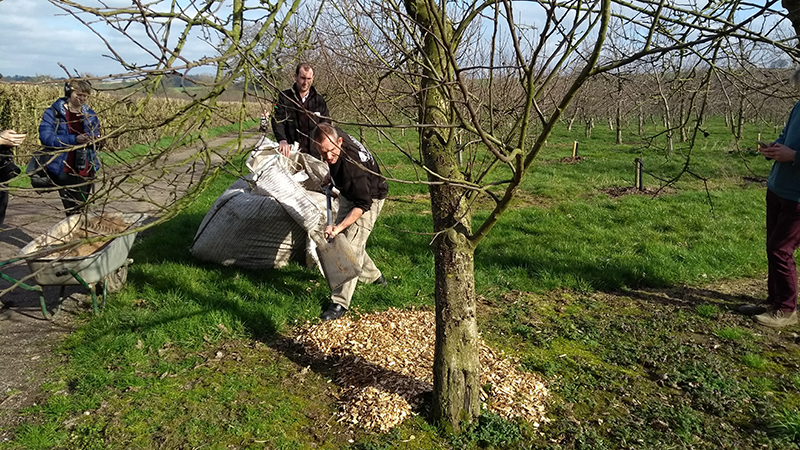Now in its 10th year, the Innovative Farmers network is celebrating the success of more than 120 field labs that have placed farmers in the driving seat of agricultural research, with the network connected with around 12,000 UK farmers.

The Organic Research Centre has been a pioneer of participatory research and is proud to have been a partner from the start. We have been involved in a huge range of field labs:
Silvopasture for livestock, biodiversity and soil health
Leguminous leys for organic dairy
Zone tillage for lower inputs and healthy soil
Compost teas in arable cropping
Land Gardeners Controlled-Aerobic-Compost group
Anaerobic digestate in organic arable systems
Green manures to increase N availability
Improving soil health across a shared rotation
Amendments for soil health in top fruit
Intercropping in arable systems
Legumes for building fertility
Reducing potato blight with mesh covers
Growing quinoa organically in the UK
Growing heritage wheat varieties for thatching
Reducing antibiotic use in dairy farming
Comfrey teas for improved crop yields
Hot water seed treatment to reduce leaf spot
Feeding sprouted cereals and pulses to livestock
Cultural methods to control blackgrass
Growing with peat-free woodchip compost
Mark Lea, Green Acres Farm, took part in the intercropping field lab, and is now working with Innovative Farmers to trial growing a permanent living mulch as an understory for his crops. He said: “Having researchers to come and measure has been a game changer. Before being involved in field labs I wouldn’t have really measured anything. I would have just looked at the crop and I’d be going on gut feeling. Now we’re working with a lot more precision, and this helps us develop our understanding and also allows us to share that understanding with other farmers.”
To kick off the 10th anniversary the Soil Association have published a 10-year special of the Field Lab Journal showcasing five cutting edge on-farm trials; from living mulches to trap crops, tomato sensors, cover crops in hops and couch grass control. You can read it on Innovative Farmers’ website, where you can also follow a link to the pdf if you’d prefer to read in this format instead.
